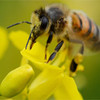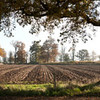New resource will greatly accelerate scientific discovery and the rate of wheat improvement
New resource will greatly accelerate scientific discovery and the rate of wheat improvement
A team of scientists in the UK and USA have generated a new groundbreaking resource of ten million mutations in bread and pasta wheat varieties.
Researchers and breeders can search the public wheat database online to identify changes in their genes of interest and request seeds to improve the nutrition and production of wheat worldwide. They anticipate this will speed up the development of the wheat crop with highly sought-after traits, including disease resistance and increased yield.
Since the dawn of agriculture, wheat has been a major dietary source of calories and protein for humans. Breeding of better bread and pasta wheat varieties is key for sustaining global food security. The modern-day cultivated wheat species harbor polyploid genomes, meaning that each plant has multiple functional copies of each gene.1 Therefore, genetic variation (such as mutations) in one gene copy are frequently masked, or hidden, by functional copies within the other genomes.
Scientists from the Earlham Institute (EI, UK), the John Innes Centre (JIC, UK), Rothamsted Research (RRes, UK) and the University of California, Davis (UC Davis, USA), funded by BBSRC, USDA and HHMI, have catalogued ten million mutations by sequencing 400 billion bases of DNA from 2735 mutant wheat lines. These hidden mutations are likely to disrupt more than 90% of the pasta and bread wheat genes.
Wheat researchers from all over the world are using this publicly available collection of mutants with close to 3,000 individual seed stocks already distributed. The first results are starting to surface. Using these mutations, improved nutritional wheat varieties with larger grains and more dietary value have been developed. Scientists are also utilising this collection to characterise gene functions that control wheat flowering and adaptation to new and changing environments.
First author Dr Ksenia Krasileva, Group Leader at EI and The Sainsbury Laboratory, said: “Breeding better wheat is an ongoing major challenge that we need to meet to keep agriculture sustainable and produce varieties that are well adapted to changes in global climate. Within the polyploid wheat genomes, there is a highly-significant amount of genetic variation that researchers can unearth that is commonly hidden - masked by multiple copies of each gene in the different wheat genomes. We need to identify and combine variation from different wheat genes in order to reveal the crop’s most beneficial changes.
“Our study produced a well-catalogued collection of over 10 million changes in wheat genes that breeders and researchers can use today to improve wheat. Essentially, this work will help us to better understand the functions of wheat mutations that have taken place in our wheat varieties, which should hopefully aid worldwide production of wheat.”
Dr Cristobal Uauy, Crop Genetics Project Leader at JIC, added: “This study provides immediate access to a treasure trove of genetic variation to breeders and researchers. Critically, this variation and the novel combinations that will be generated have not previously been utilised in traditional wheat breeding programmes. This represents an unprecedented opportunity to make significant progress in wheat improvement to address a series of challenges facing sustainable crop production.”
Dr Andy Phillips, Principal Investigator in the Dept of Plant Biology and Crop Science at Rothamsted Research, said: “Since before the Green Revolution, mutation breeding has been very valuable in less complex crops such as rice, which as a diploid does not have additional copies of most genes. Our work provides a valuable non-GM resource that will allow scientists and breeders to identify and combine mutations in the multiple copies of wheat target genes, allowing the effects on the plant to be observed and exploited to accelerate crop improvement.”
The scientific paper “Uncovering hidden variation in polyploid wheat” is published in PNAS.
Publication
Contacts
Notes to Editors
- The breeding of better varieties of bread and pasta wheat is key for sustaining global food security. Pasta wheat has two pairs of seven chromosomes (four genomes - tetraploid), while bread wheat has three such pairs (six genomes - hexaploid).
About Earlham Institute
The Earlham Institute (EI) is a world-leading research institute focusing on the development of
genomics and computational biology. EI is based within the Norwich Research Park and is one of eight institutes that receive strategic funding from Biotechnology and Biological Science Research Council (BBSRC) - £6.45M in 2015/2016 - as well as support from other research funders. EI operates a National Capability to promote the application of genomics and bioinformatics to advance bioscience research and innovation.
EI offers a state of the art DNA sequencing facility, unique by its operation of multiple complementary technologies for data generation. The Institute is a UK hub for innovative bioinformatics through research, analysis and interpretation of multiple, complex data sets. It hosts one of the largest computing hardware facilities dedicated to life science research in Europe. It is also actively involved in developing novel platforms to provide access to computational tools and processing capacity for multiple academic and industrial users and promoting applications of computational Bioscience. Additionally, the Institute offers a training programme through courses and workshops, and an outreach programme targeting key stakeholders, and wider public audiences through dialogue and science communication activities.
www.earlham.ac.uk
@EarlhamInst
About the John Innes Centre
The John Innes Centre is an independent, international centre of excellence in plant science and microbiology.
Our mission is to generate knowledge of plants and microbes through innovative research, to train scientists for the future, to apply our knowledge of nature’s diversity to benefit agriculture, the environment, human health and wellbeing, and engage with policy makers and the public.
To achieve these goals we establish pioneering long-term research objectives in plant and microbial science, with a focus on genetics. These objectives include promoting the translation of research through partnerships to develop improved crops and to make new products from microbes and plants for human health and other applications. We also create new approaches, technologies and resources that enable research advances and help industry to make new products. The knowledge, resources and trained researchers we generate help global societies address important challenges including providing sufficient and affordable food, making new products for human health and industrial applications, and developing sustainable bio-based manufacturing.
This provides a fertile environment for training the next generation of plant and microbial scientists, many of whom go on to careers in industry and academia, around the world.
The John Innes Centre is strategically funded by the Biotechnology and Biological Sciences Research Council (BBSRC). In 2015-2016 the John Innes Centre received a total of £30.1 million from the BBSRC.
The John Innes Centre is also supported by the John Innes Foundation through provision of research accommodation and long term support of the Rotation PhD programme.
The John Innes Centre is the winner of the BBSRC’s 2013 - 2016 Excellence With Impact award.
About The Sainsbury Laboratory, Norwich
The Sainsbury Laboratory (TSL) is a world-leading research centre focusing on making fundamental discoveries about plants and how they interact with microbes. TSL not only provides fundamental biological insights into plant-pathogen interactions, but is also delivering novel, genomics-based, solutions which will significantly reduce losses from major diseases of food crops, especially in developing countries. TSL is an independent charitable company and receives strategic funding from the Gatsby Charitable Foundation with the balance coming from competitive grants and contracts from a range of public and private bodies, including the European Union (EU), Biotechnology and Biological Sciences Research Council (BBSRC) and commercial and charitable organisations www.tsl.ac.uk.






